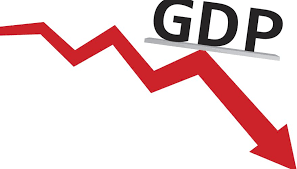HMRC umbrella company ‘checking tool’ looms for workers
Umbrella company consultation response and guidance due from HMRC, as more details come out on Tax Administration and...
READ MORE
Negative growth will persist if the government does not do something to turn the economy around, said the Federation of Small Businesses following the release of the GDP figures for March.

Last week the Office for National Statistics (ONS) figures revealed that GDP fell 0.1 per cent in March and the UK’s trade deficit, at £25.2 billion, is at its greatest since records began, said FSB national chair Martin McTague.
The breakdown of the ONS figures showed that GDP fell after no growth in February 2022 with services falling by 0.2 per cent on the month – the main contributor to March’s fall.
This reflected a large decrease (15.1 per cent) in the wholesale and retail trade and repair of motor vehicles and motorcycles industry.
Production also fell on the month by 0.2 per cent; these falls were partially offset by construction, which grew by 1.7 per cent.
Output in consumer-facing services fell by 1.8 per cent in March 2022, following a 0.5 per cent (revised down from 0.7 per cent) growth in February 2022; non-consumer facing services grew by 0.2 per cent on the month following a 0.1 per cent fall in February (revised down from 0.0 per cent).
Monthly GDP is now 1.2 per cent above its pre-coronavirus (COVID-19) pandemic level (February 2020).
Services is now 1.5 per cent above its pre-coronavirus level, while construction is 3.7 per cent above and production is 1.6 per cent below; within services, consumer-facing services were 6.8 per cent below their pre-coronavirus levels in March 2022, while all other services were 3.6 per cent above.
Mr McTague said the UK economic recovery is “stumbling when it’s barely had a chance to come out of the gate”.
“Small business owners were feeling bullish at the start of this year, paving the way for a summer trading season that would have had it back on track,” he said.
“That rebound in activity is now at serious risk, with surging costs weighing heavily on our economic potential.
“We hear a lot from politicians about the cost-of-living crisis, but very little about the cost-of-doing-business crisis that underlies it.
“Producer price inflation has been surging ahead of consumer price inflation for some time now, with businesses trying to absorb the difference.
“There comes a point, however, when they have no choice but to pass on more of their spiralling costs to customers.
“Consumer-facing firms, having been hardest-hit over lockdowns, are now caught between customers less willing to spend and the need to increase prices to cover surging outgoings, leading to a serious contraction in services output.
“The 15 per cent fall in output for vehicle repair and MOT service centres is particularly worrying for that sector, as people travel less due to fuel costs.
“The economy has hardly grown over the past two years and we now have an indication that it’s shrinking again.”
He said unless the government acts to stem the cost-of-doing-business crisis – extending direct support on energy costs to the small businesses caught between consumers and corporates, enabling firms to reclaim the cost of sick pay, and going much further in alleviating the pressure of regressive business rates – negative growth is set to persist.
“The combination of sustained high inflation and a recession would be devastating,” Mr McTague said.
“Exporting small firms are typically among our most profitable and innovative – our economy needs more of them.
“With our trade deficit now at its widest since records began, we’re urging government to take forward our recommendation for a new SME Trade Support Fund which would empower more of the smallest businesses to trade overseas.
“At the same time, Government needs to get serious about putting small firms first in tackling this deeply concerning deficit, making dedicated small business chapters central to any new trade deals.”
Suren Thiru, head of economics at the British Chambers of Commerce (BCC), said markedly slower growth confirms an alarming loss of momentum for the UK economy in the first quarter, from a strong January out-turn to a decline in output in March as surging inflation increasingly weighed on activity.
“The services sector was a key driver of GDP growth in the quarter, as the release of pent-up customer demand after Plan B restrictions expired and declining concerns over Omicron, boosted activity within hospitality and tourism. In contrast, health sector output fell as NHS Test and Trace and the COVID vaccination programmes reduced activity,” he said.
“The decline in business investment is further confirmation that it remains a weak point for the UK economy, limiting innovation and productivity, stifling the UK’s growth prospects.
“The first quarter slowdown is likely to be followed by a mild contraction in economic output in the second quarter as surging inflation, soaring energy bills and higher taxes suffocates economic output by suppressing consumer spending and business investment.
“Declining health sector output following the scrapping of free Covid testing in April and the extra bank holiday in June are also likely to drag on second quarter UK GDP.
“Against this backdrop, the Bank of England’s recent decision to raise interest rates continues to look like a misstep.
“An emergency budget is urgently needed to give firms the breathing space they need to raise productivity and strengthen the economy, including reversing the recently introduced National Insurance increase until at least the next financial year.”